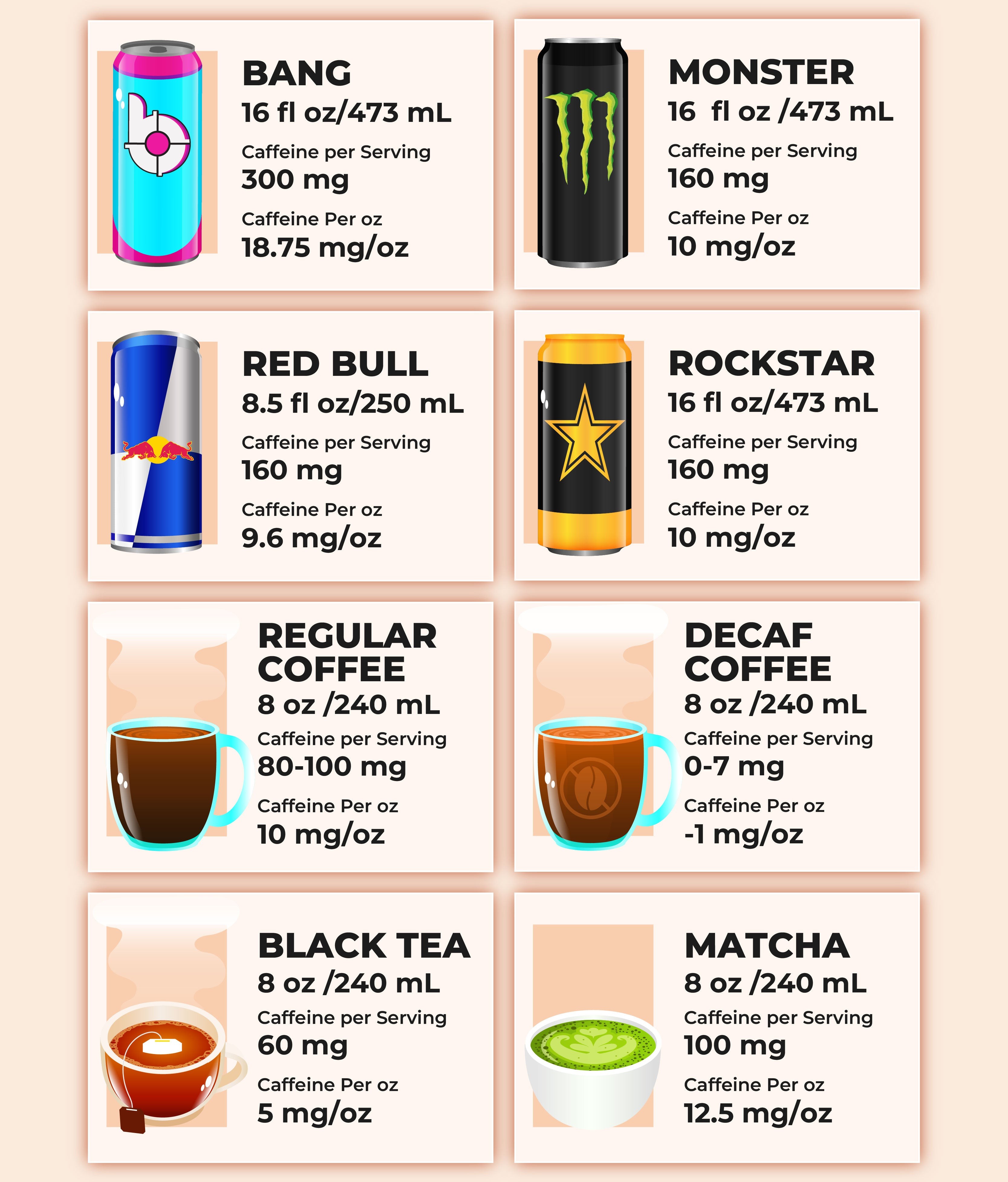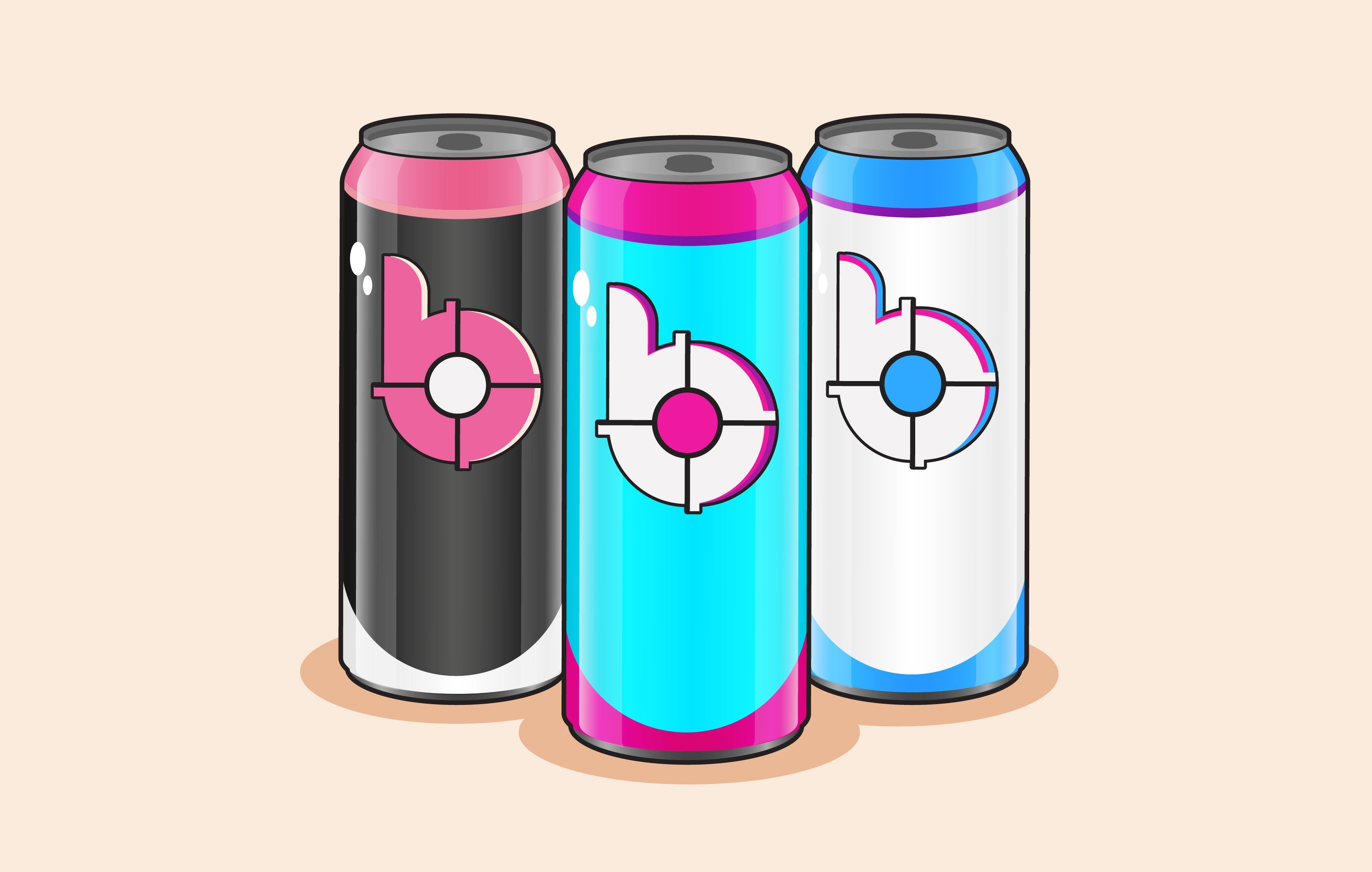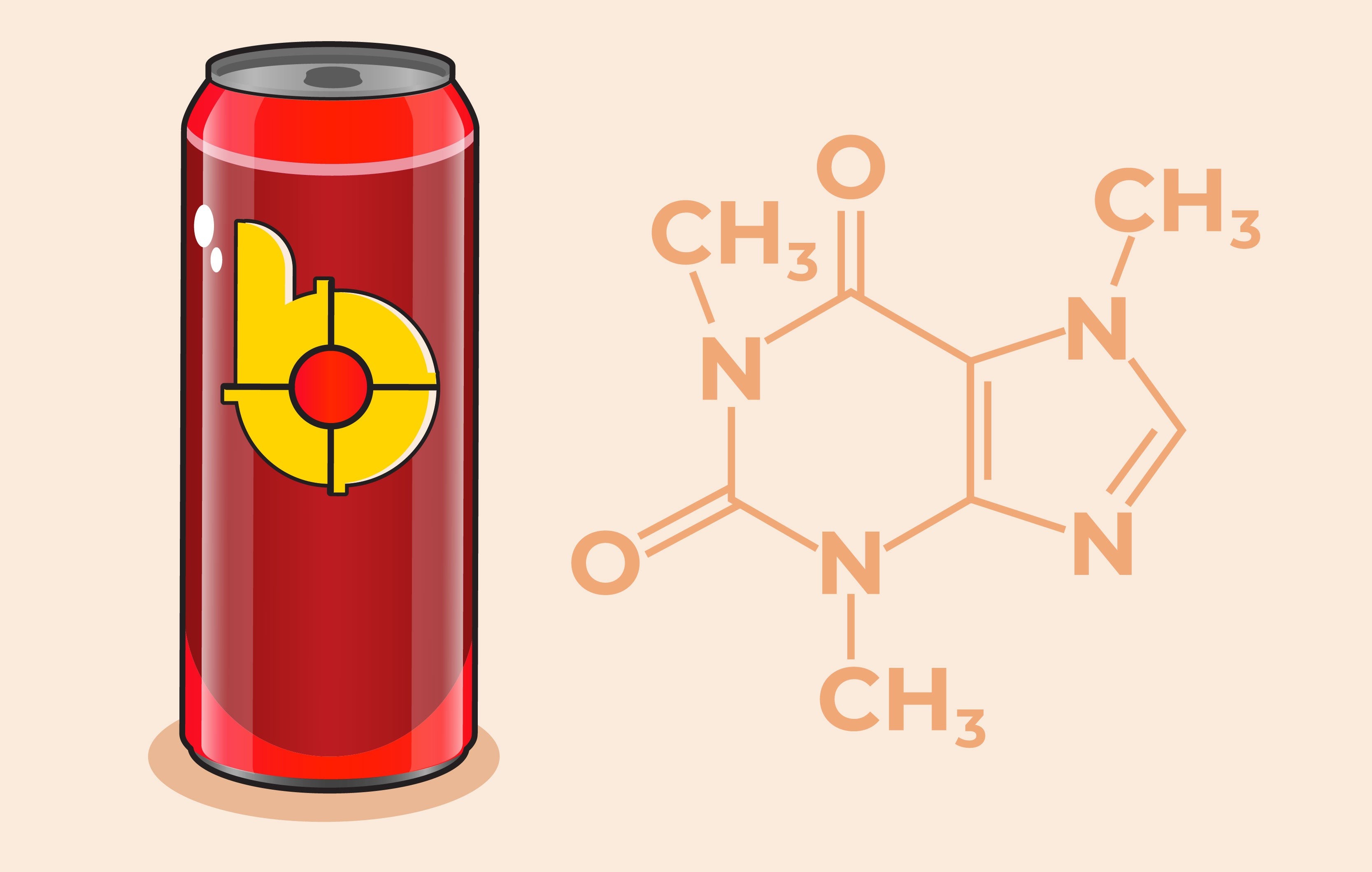Bang Energy drinks are popular for their intense energy boost, but How Much Caffeine Does Bang Energy Have compared to other beverages? At HOW.EDU.VN, we understand the importance of making informed choices about what you consume. Our team of experts will help you navigate the caffeine content in Bang Energy, comparing it to other sources, discussing potential health effects, and exploring safer alternatives. Learn more about energy drinks, caffeine levels, and healthy habits today.
1. Caffeine Content in Bang Energy: A Detailed Look
Energy drinks are marketed to enhance energy levels, improve physical performance, and sharpen mental focus. Bang Energy drinks stand out due to their particularly high caffeine concentration, containing 300 mg of caffeine per can. This amount is significantly more than what is found in a typical cup of coffee.
Comparison of Caffeine Levels:
| Beverage | Caffeine Content (approximate) |
|---|---|
| Bang Energy (1 can) | 300 mg |
| Coffee (8 oz cup) | 95 mg |
| Black Tea (8 oz cup) | 47 mg |
| Green Tea (8 oz cup) | 28 mg |
| Coca-Cola (12 oz can) | 34 mg |



1.1 Anhydrous Caffeine: The Power Behind Bang Energy
Bang Energy drinks utilize anhydrous caffeine, a processed form of caffeine derived from coffee plant seeds and leaves. This form undergoes further refinement in a lab to produce a pure, highly concentrated substance. According to the FDA, just one teaspoon of anhydrous caffeine is equivalent to approximately 28 cups of regular coffee. This potent concentration is why Bang Energy delivers such a powerful and immediate energy surge.
2. Health Implications of High Caffeine Levels
The FDA suggests that most healthy adults can safely consume up to 400 mg of caffeine per day. This limit is roughly equivalent to four or five cups of coffee, eight cups of tea, or two standard energy drinks. However, given the high caffeine concentration in Bang Energy drinks, consuming more than one can per day may pose risks.
Potential Adverse Effects of High Caffeine Consumption:
- Anxiety or Nervousness
- Jitteriness
- Insomnia
- Digestive Issues (Diarrhea or Vomiting)
- Addiction
- Elevated Blood Pressure
- Heart Palpitations and Chest Discomfort
- Withdrawal Symptoms (Fatigue, Headaches)
- Frequent Urination
- Headaches, Dizziness, or Delirium
If you experience any of these symptoms after consuming caffeine, seek medical attention immediately.
2.1 Long-Term Effects and Research Insights
Research has shown that high doses of caffeine can lead to significant health issues. For instance, a study published in the Journal of the American Heart Association found that excessive caffeine consumption could lead to cardiac arrhythmias, especially in younger individuals.
“Consuming high levels of caffeine regularly can disrupt the heart’s natural rhythm and lead to serious complications,” explains Dr. Emily Carter, a leading cardiologist. At HOW.EDU.VN, our experts can provide tailored advice on managing caffeine intake to protect your heart health.
3. Who Should Avoid Bang Energy Drinks?
Bang Energy advises against consumption by children, pregnant or nursing women, and individuals sensitive to caffeine. The product label explicitly states these warnings to mitigate potential adverse effects.
Groups Advised to Avoid Bang Energy:
- Children and Adolescents
- Pregnant or Nursing Women
- Individuals with Caffeine Sensitivity
- People with Anxiety Disorders
- Individuals with Bipolar Disorder
- People with Bleeding Disorders
- Individuals with Heart Conditions
- People with Diabetes
- Individuals with Epilepsy
- People with Glaucoma
- Individuals with High Blood Pressure
- People with Parkinson’s Disease
- Individuals with Schizophrenia
It’s essential to recognize that individual tolerance to caffeine varies. The FDA’s recommended daily intake serves as a general guideline, and individuals should monitor their reactions to caffeine to determine their personal limits.
3.1 Consulting Experts on Specific Conditions
Navigating the impact of caffeine on pre-existing health conditions can be complex. That’s where HOW.EDU.VN steps in. Our platform connects you with leading doctors and specialists who can provide personalized advice.
“Understanding how caffeine interacts with your specific health profile is crucial,” says Dr. James Oliver, an endocrinologist affiliated with HOW.EDU.VN. “Our experts can help you make informed decisions based on your unique health needs.”
4. The History and Evolution of Bang Energy
Launched in 2012, Bang Energy quickly gained popularity, becoming the fourth-highest-selling energy drink by 2023. However, the brand faced challenges when its CEO made unsubstantiated claims about the drinks’ ability to cure neurological disorders such as Alzheimer’s and Parkinson’s disease.
Following a multimillion-dollar lawsuit from competitor Monster Energy, Bang Energy declared bankruptcy in 2023 and was subsequently acquired by Monster. The company had previously offered a variety of products, including Bang Keto Coffee and Bang Natural, but these have since been discontinued.
4.1 Addressing Misinformation
At HOW.EDU.VN, we prioritize accuracy and reliability. When brands make unsubstantiated claims, it’s vital to seek verified information. Our team of medical experts and nutritionists can help you differentiate between marketing hype and scientific fact.
5. Consumer Perceptions of Bang Energy
Despite its popularity, consumer reviews of Bang Energy are mixed. Social conversations about Bang Energy decreased significantly from 2023 to 2024, partly due to changing marketing trends and consumer preferences for healthier beverage options.
Consumer rankings of the “most popular flavor” also vary widely, although Black Cherry Vanilla consistently ranks high. Bang Energy offers a wide array of flavors, from Peach Mango to Rainbow Unicorn.
5.1 Analyzing Trends and Preferences
Consumer behavior is constantly evolving. HOW.EDU.VN provides insights into current health and wellness trends, helping you stay informed about the latest research and consumer preferences. Our market analysts track and interpret these trends to provide valuable perspectives.
6. Healthier Alternatives to High-Caffeine Energy Drinks
If you’re concerned about the high caffeine content in Bang Energy drinks, numerous lower-caffeine alternatives offer a healthier energy boost.
Lower-Caffeine Alternatives:
- Traditional Coffee: Opt for a blend like Cafely OG SaiGon, which provides a rich flavor and natural energy boost.
- Black Tea: Offers the benefits of caffeine without excessive amounts when consumed in moderation.
- Kombucha: A fermented drink that provides a gentle energy lift with B vitamins and only 10-15 mg of caffeine per 8oz serving.
- Coconut Water: Loaded with electrolytes to replenish and boost energy without caffeine.
- Protein Shakes: Excellent post-workout beverages to replenish nutrients and provide a natural energy boost.
6.1 Personalized Recommendations
Finding the right energy source depends on your individual needs and preferences. At HOW.EDU.VN, our nutrition experts can help you explore alternatives to high-caffeine energy drinks, tailored to your lifestyle and health goals.
7. Addressing Common Concerns: Bang Energy FAQs
Many consumers have questions about the caffeine content of Bang Energy drinks. Here are some answers to frequently asked questions:
7.1. How does the caffeine in Bang compare to coffee?
One can of Bang contains approximately three times the caffeine found in an average cup of coffee.
7.2. Is it safe to drink Bang every day?
While one can of Bang may fall within the FDA’s recommended daily caffeine intake, daily consumption is not recommended for everyone, especially for prolonged periods.
7.3. Can Bang cause a caffeine overdose?
Yes, consuming multiple cans in a short period can lead to a caffeine overdose.
7.4. Are there caffeine-free versions of Bang?
No, all available Bang Energy drinks contain a high amount of caffeine.
7.5. How does Bang affect workout performance?
Bang can increase alertness and energy, potentially improving workout intensity.
7.6. Is Bang suitable for children?
No, Bang energy drinks are not recommended for children due to their high caffeine content.
7.7. Is Bang suitable for adults?
Bang is not recommended for pregnant or nursing women or those with caffeine sensitivity.
7.8. How does Bang compare to other energy drinks?
Bang has a higher caffeine content than most other energy drinks.
7.9. Can Bang help with weight loss?
While often marketed as a weight loss aid, energy drinks are often associated with poor weight loss behaviors and unhealthy body image.
7.10. What are some natural alternatives to Bang?
Natural coffee blends, like Cafely Sai Gon OG, have lower caffeine levels and are a healthier alternative.
7.2 Expert Answers and Personalized Guidance
At HOW.EDU.VN, we go beyond simple FAQs. Our experts provide in-depth answers and personalized guidance to address your unique concerns. If you have more specific questions about Bang Energy or other health topics, our team is here to help.
8. Understanding Caffeine Overdose: Risks and Symptoms
Caffeine overdose occurs when you consume a toxic amount of caffeine, leading to severe health complications. Knowing the risks and symptoms is critical for prevention and early intervention.
8.1 Symptoms of Caffeine Overdose
- Rapid or Irregular Heartbeat
- Difficulty Breathing
- Vomiting
- Seizures
- Confusion
- Hallucinations
If you experience these symptoms, seek immediate medical attention.
8.2 Long-Term Effects of Overdose
Chronic caffeine overdose can lead to long-term health problems, including cardiovascular issues, neurological damage, and mental health disorders. Consulting with a medical expert is vital to manage these risks.
9. Caffeine and Heart Health: What the Experts Say
Caffeine’s impact on heart health is a significant concern. While moderate caffeine consumption is generally considered safe for healthy adults, excessive intake can lead to heart-related issues.
9.1 Research-Backed Insights
According to the American Heart Association, high doses of caffeine can cause increased heart rate and blood pressure, potentially leading to serious cardiovascular events. Individuals with pre-existing heart conditions are particularly vulnerable.
9.2 Personalized Heart Health Advice
At HOW.EDU.VN, our cardiologists offer personalized advice to protect your heart health. We can help you understand how caffeine affects your specific condition and recommend safe consumption limits.
10. Caffeine and Mental Health: Finding the Balance
Caffeine can have both positive and negative effects on mental health. While it can enhance alertness and focus, excessive consumption can exacerbate anxiety and insomnia.
10.1 Effects on Anxiety and Sleep
Studies have shown that high caffeine intake can worsen anxiety symptoms and disrupt sleep patterns. Finding a balance is essential for maintaining mental well-being.
10.2 Expert Mental Health Guidance
Our psychiatrists and psychologists at HOW.EDU.VN can provide tailored advice on managing caffeine intake to support your mental health. We offer strategies to reduce anxiety, improve sleep, and optimize cognitive function.
11. The Role of Electrolytes and Hydration
Caffeine is a diuretic, meaning it can increase urination and lead to dehydration. Proper hydration and electrolyte balance are essential to counteract these effects.
11.1 Electrolyte-Rich Beverages
Consider beverages like coconut water and sports drinks to replenish electrolytes lost through increased urination. These options can help maintain optimal hydration levels.
11.2 Expert Hydration Strategies
Our nutritionists at HOW.EDU.VN can provide personalized hydration strategies to support your overall health. We offer advice on balancing caffeine intake with adequate fluid and electrolyte consumption.
12. Navigating Caffeine Withdrawal: Symptoms and Management
Caffeine withdrawal can occur when you suddenly reduce or stop caffeine consumption. Understanding the symptoms and management strategies can help you minimize discomfort.
12.1 Common Withdrawal Symptoms
- Headaches
- Fatigue
- Irritability
- Difficulty Concentrating
12.2 Strategies for Management
Gradually reducing caffeine intake, staying hydrated, and getting adequate rest can help alleviate withdrawal symptoms.
12.3 Professional Support
Our healthcare professionals at HOW.EDU.VN can provide additional support and guidance to help you navigate caffeine withdrawal. We offer personalized strategies to minimize discomfort and promote long-term well-being.
13. Examining Caffeine’s Impact on Physical Performance
Caffeine is often used to enhance physical performance due to its stimulating effects. However, understanding the optimal dosage and potential risks is essential.
13.1 Benefits and Risks
Caffeine can improve endurance, strength, and focus during workouts. However, excessive consumption can lead to adverse effects like jitteriness and heart palpitations.
13.2 Expert Fitness Advice
Our certified fitness trainers and nutritionists at HOW.EDU.VN can provide personalized advice on using caffeine to optimize physical performance safely. We offer strategies to maximize benefits while minimizing risks.
14. The Connection Between Caffeine and Digestive Health
Caffeine can affect digestive health, leading to issues like diarrhea and acid reflux in some individuals.
14.1 Potential Digestive Issues
Caffeine stimulates bowel movements, which can cause diarrhea in sensitive individuals. It can also relax the lower esophageal sphincter, leading to acid reflux.
14.2 Expert Digestive Health Guidance
Our gastroenterologists at HOW.EDU.VN can provide tailored advice on managing caffeine intake to support your digestive health. We offer strategies to minimize discomfort and promote optimal digestive function.
15. The Future of Energy Drinks: Trends and Innovations
The energy drink market is continuously evolving, with new trends and innovations emerging regularly.
15.1 Emerging Trends
- Natural and Organic Energy Drinks
- Lower-Caffeine Options
- Functional Ingredients (Vitamins, Minerals, Antioxidants)
15.2 Innovation Insights
Stay informed about the latest developments in the energy drink industry with HOW.EDU.VN. Our market analysts track and interpret trends to provide valuable perspectives.
16. Making Informed Choices: Your Path to Wellness
Choosing the right energy source is essential for your health and well-being. Understanding the caffeine content of beverages like Bang Energy is the first step toward making informed decisions.
16.1 Personalized Wellness Plans
At HOW.EDU.VN, our experts are dedicated to helping you achieve your wellness goals. We offer personalized plans tailored to your unique needs and preferences.
16.2 Expert Support
Connect with our team of doctors, nutritionists, and fitness trainers to receive expert guidance and support. We’re here to help you optimize your health and well-being.
Don’t navigate the complex world of health and wellness alone. Contact us today to connect with leading doctors and specialists who can provide personalized advice tailored to your unique needs.
Contact us at:
- Address: 456 Expertise Plaza, Consult City, CA 90210, United States
- WhatsApp: +1 (310) 555-1212
- Website: HOW.EDU.VN
Let how.edu.vn be your trusted partner in achieving optimal health and well-being.
References:
- U.S. Department of Health and Human Services. (n.d.). Energy drinks. National Center for Complementary and Integrative Health. https://www.nccih.nih.gov/health/energy-drinks
- Ribeiro, J. A., & Sebastião, A. M. (2010). Caffeine and adenosine. Journal of Alzheimer’s Disease: JAD, 20 Suppl 1(20), S3-15. https://doi.org/10.3233/JAD-2010-1379
- Commissioner, O. of the. (n.d.). Spilling the beans: How much caffeine is too much? U.S. Food and Drug Administration. https://www.fda.gov/consumers/consumer-updates/spilling-beans-how-much-caffeine-too-much
- USDA. (2020). Dietary Guidelines For Americans. Ninth Edition. https://www.dietaryguidelines.gov/sites/default/files/2020-12/Dietary_Guidelines_for_Americans_2020-2025.pdf
- A;, M. A. S. A. (n.d.). Energy drinks and atrial fibrillation in young adults. Clinical nutrition (Edinburgh, Scotland). https://pubmed.ncbi.nlm.nih.gov/28527645/
- Higgins, J. P., Tuttle, T. D., & Higgins, C. L. (2010, November). Energy beverages: Content and safety. Mayo Clinic proceedings. https://www.ncbi.nlm.nih.gov/pmc/articles/PMC2966367/
- EG;, J. A. H. K. (n.d.). Energy Drinks, weight loss, and disordered eating behaviors. Journal of American College Health : J of ACH. https://pubmed.ncbi.nlm.nih.gov/24635529/
